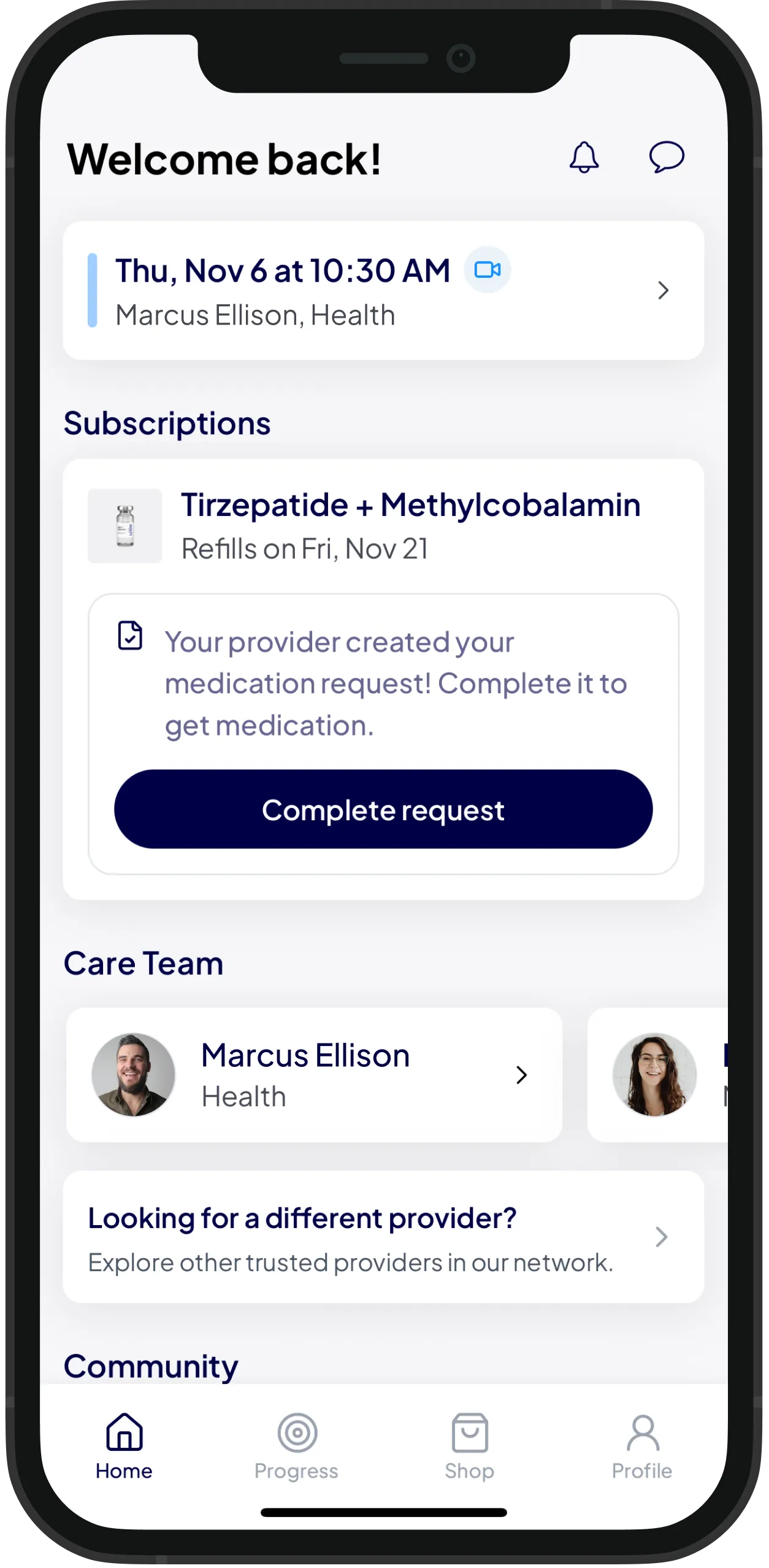Ready to transform your health?
Unlock access to expert guidance and a weight care plan crafted just for you.
Ready to transform your health?
Unlock access to expert guidance and a weight care plan crafted just for you.
Branded medication
Branded medication
Branded medication
Updated on
Updated on
Updated on
Aug 13, 2025
Aug 13, 2025
Aug 13, 2025
Why Does Wegovy® Cause Diarrhea: Insights and Advice
Why Does Wegovy® Cause Diarrhea: Insights and Advice
Why Does Wegovy® Cause Diarrhea: Insights and Advice
Discover how Wegovy® may lead to diarrhea as a side effect. Learn about managing this condition and optimizing treatment with Wegovy® for better comfort.
Discover how Wegovy® may lead to diarrhea as a side effect. Learn about managing this condition and optimizing treatment with Wegovy® for better comfort.
Discover how Wegovy® may lead to diarrhea as a side effect. Learn about managing this condition and optimizing treatment with Wegovy® for better comfort.



Table of Contents
Table of Contents
Table of Contents
Does Wegovy® Cause Diarrhea?
Why Does Wegovy® Cause Diarrhea?
How to Manage Diarrhea Caused by Wegovy
Get Personalized Guidance For Managing Wegovy® Side Effects
Comparing Diarrhea as a Side Effect Across Weight Loss Treatments
Does Wegovy® Cause Diarrhea?
Why Does Wegovy® Cause Diarrhea?
How to Manage Diarrhea Caused by Wegovy
Get Personalized Guidance For Managing Wegovy® Side Effects
Comparing Diarrhea as a Side Effect Across Weight Loss Treatments
Does Wegovy® Cause Diarrhea?
Why Does Wegovy® Cause Diarrhea?
How to Manage Diarrhea Caused by Wegovy
Get Personalized Guidance For Managing Wegovy® Side Effects
Comparing Diarrhea as a Side Effect Across Weight Loss Treatments
Wegovy®, which uses the active ingredient semaglutide, has emerged as a top choice among obesity treatments given its effectiveness in promoting weight loss and reducing obesity-related conditions. Individuals seeking to lose weight may consider it a viable option. However, like any medication, Wegovy comes with its share of potential side effects, which are mostly gastrointestinal disruptions, such as nausea, vomiting, stomach upset, and diarrhea (1,2). Understanding the relationship between Wegovy® and diarrhea is crucial for anyone considering this medication as part of their weight loss regimen.
Does Wegovy® Cause Diarrhea?
Wegovy® can indeed lead to diarrhea in some individuals (1,3). While it is not a universal side effect experienced by all users, it is significant enough to warrant attention. Studies have found that subcutaneous semaglutide for 30 weeks induced diarrhea in 4.5 to 11.3% of patients. Compare that to the placebo group in which diarrhea was noted in 1.5–6% of participants (3). Diarrhea can range from mild to severe and can impact daily activities and overall quality of life (3). However, in general, the unpleasant gastrointestinal side effects, including diarrhea, tend to be mild to moderate in severity and often resolve on their own (3). As diarrhea can lead to dehydration, it is crucial for users and healthcare providers to monitor this side effect closely.
Why Does Wegovy® Cause Diarrhea?
The mechanism of action of Wegovy, which involves regulating appetite and food intake, can also affect gastrointestinal function in several ways:
GLP-1 receptor agonism: Wegovy® works by mimicking the incretin hormones, which play a role in signaling the brain to regulate blood sugar and slow down gastric emptying (4,5). This slowing can contribute to an increased risk of diarrhea.
Changes in gut flora: Any alteration in diet, which often accompanies the start of a weight loss drug like Wegovy®, can change the balance of gut bacteria, potentially leading to diarrhea (6).
Individual sensitivity: People have varying sensitivities to medications, and some may be more prone to gastrointestinal side effects than others. Talk with your doctor if you’re having a difficult time tolerating your current dose.
How to Manage Diarrhea Caused by Wegovy
If you are experiencing diarrhea while on Wegovy®, there are several strategies you can employ to manage this side effect:
Stay hydrated: Diarrhea can lead to dehydration. Ensure you are drinking plenty of fluids throughout the day, especially electrolyte-rich fluids (7). Fruit juices, soda, or salty bone broths with saltine crackers are often sufficient to replace fluid losses in mild to moderate cases of medication-induced diarrhea in adults (8).
Adjust your diet: Incorporate bland foods into your diet and avoid spicy or fatty foods which may exacerbate symptoms (7).
Probiotics: There is insufficient evidence to support the use of probiotics in restoring a healthy balance of gut flora (8).
Consult with a healthcare provider: If diarrhea is severe or persistent, it's essential to discuss this with your healthcare provider. They may adjust your dosage or suggest alternative solutions.
Get Personalized Guidance For Managing Wegovy® Side Effects
At Mochi Health, we prioritize patient-centered care by offering personalized plans to manage side effects like diarrhea from Wegovy®. Our team of board-certified providers and registered dietitians create tailored strategies, including dietary adjustments and hydration tips, ensuring you remain comfortable and confident throughout your treatment.
If you're looking to get started on a weight loss plan or are not satisfied with your current provider's support, consider Mochi Health. Our comprehensive care includes virtual visits, unlimited nutrition coaching, prescriptions delivered to your door, and 24/7 access to our care team. Find out if you’re eligible today and take the first step towards better health.
Comparing Diarrhea as a Side Effect Across Weight Loss Treatments
When considering weight loss options, it's helpful to compare potential side effects across different treatments:
Tirzepatide (sold under the brand-name medications Zepbound® and Mounjaro): A relatively new addition to the weight loss pharmacotherapy landscape, Tirzepatide works through dual incretin receptor agonism (GLP-1 and GIP). This unique mechanism not only aids in weight loss but may also influence the gastrointestinal tract, potentially leading to diarrhea in some users (9).
Liraglutide (Saxenda): Sharing a similar action mechanism to Wegovy® as a GLP-1 receptor agonist, Liraglutide is associated with gastrointestinal side effects, including diarrhea. Like Wegovy®, it works by regulating appetite but can affect gut movement and sensitivity, leading to discomfort (10).
Explore other medications here: https://joinmochi.com/medications
In conclusion, while diarrhea is a potential side effect of Wegovy®, it's important to weigh this against the medication's potential benefits in terms of weight loss and overall health improvement. Discussing this with a healthcare provider can help in making an informed choice and managing any side effects effectively.
This post was written by our team of health writers for informational purposes only and does not constitute medical advice. Always consult your doctor or healthcare provider for personalized guidance regarding your health. Ozempic®, Wegovy®, Mounjaro®, and Zepbound® and their delivery device are registered trademarks. Mochi Health is a telehealth clinic that offers prescriptions for these products by medical necessity only as determined by a licensed health provider.
Sources
Wilding, J. P. H., Batterham, R. L., Calanna, S., Davies, M., Van Gaal, L. F., Lingvay, I., McGowan, B. M., Rosenstock, J., Tran, M. T. D., Wadden, T. A., Wharton, S., Yokote, K., Zeuthen, N., Kushner, R. F., & STEP 1 Study Group (2021). Once-Weekly Semaglutide in Adults with Overweight or Obesity. The New England journal of medicine, 384(11), 989–1002. https://www.nejm.org/doi/10.1056/NEJMoa2032183?url_ver=Z39.88-2003&rfr_id=ori:rid:crossref.org&rfr_dat=cr_pub%20%200pubmed
Bettge, K., Kahle, M., Abd El Aziz, M.S., Meier, J.J., Nauck, M.A., 2017. Occurrence of nausea, vomiting and diarrhoea reported as adverse events in clinical trials studying glucagon-like peptide-1 receptor agonists: A sys- tematic analysis of published clinical trials. Diabetes Obesity and Metabolism 19:336e347. https://dom-pubs.pericles-prod.literatumonline.com/doi/10.1111/dom.12824
Smits, M. M., & Van Raalte, D. H. (2021). Safety of Semaglutide. Frontiers in endocrinology, 12, 645563. https://www.ncbi.nlm.nih.gov/pmc/articles/pmid/34305810/
Holst J. J. (2007). The physiology of glucagon-like peptide 1. Physiological reviews, 87(4), 1409–1439. https://journals.physiology.org/doi/full/10.1152/physrev.00034.2006?rfr_dat=cr_pub++0pubmed&url_ver=Z39.88-2003&rfr_id=ori%3Arid%3Acrossref.org
Müller, T. D., Finan, B., Bloom, S. R., D'Alessio, D., Drucker, D. J., Flatt, P. R., Fritsche, A., Gribble, F., Grill, H. J., Habener, J. F., Holst, J. J., Langhans, W., Meier, J. J., Nauck, M. A., Perez-Tilve, D., Pocai, A., Reimann, F., Sandoval, D. A., Schwartz, T. W., Seeley, R. J., … Tschöp, M. H. (2019). Glucagon-like peptide 1 (GLP-1). Molecular metabolism, 30, 72–130. https://www.sciencedirect.com/science/article/pii/S2212877819309135?via%3Dihub
Kato, S., Sato, T., Fujita, H. et al. Effects of GLP-1 receptor agonist on changes in the gut bacterium and the underlying mechanisms. Sci Rep 11, 9167 (2021). https://www.nature.com/articles/s41598-021-88612-x
Avery, M. E., & Snyder, J. D. (1990). Oral therapy for acute diarrhea. The underused simple solution. The New England journal of medicine, 323(13), 891–894. https://www.nejm.org/doi/10.1056/NEJM199009273231307?url_ver=Z39.88-2003&rfr_id=ori:rid:crossref.org&rfr_dat=cr_pub%20%200pubmed
Riddle, M. S., DuPont, H. L., & Connor, B. A. (2016). ACG Clinical Guideline: Diagnosis, Treatment, and Prevention of Acute Diarrheal Infections in Adults. The American journal of gastroenterology, 111(5), 602–622. https://journals.lww.com/ajg/fulltext/2016/05000/acg_clinical_guideline__diagnosis,_treatment,_and.14.aspx
Jastreboff AM, Aronne LJ, Ahmad NN, Wharton S, Connery L, Alves B, Kiyosue A, Zhang S, Liu B, Bunck MC, Stefanski A; SURMOUNT-1 Investigators. Tirzepatide Once Weekly for the Treatment of Obesity. N Engl J Med. 2022 Jul 21;387(3):205-216. https://www.nejm.org/doi/10.1056/NEJMoa2206038?url_ver=Z39.88-2003&rfr_id=ori:rid:crossref.org&rfr_dat=cr_pub%20%200pubmed
Bettge, K., Kahle, M., Abd El Aziz, M. S., Meier, J. J., & Nauck, M. A. (2017). Occurrence of nausea, vomiting and diarrhoea reported as adverse events in clinical trials studying glucagon-like peptide-1 receptor agonists: A systematic analysis of published clinical trials. Diabetes, obesity & metabolism, 19(3), 336–347. https://dom-pubs.pericles-prod.literatumonline.com/doi/10.1111/dom.12824
Wegovy®, which uses the active ingredient semaglutide, has emerged as a top choice among obesity treatments given its effectiveness in promoting weight loss and reducing obesity-related conditions. Individuals seeking to lose weight may consider it a viable option. However, like any medication, Wegovy comes with its share of potential side effects, which are mostly gastrointestinal disruptions, such as nausea, vomiting, stomach upset, and diarrhea (1,2). Understanding the relationship between Wegovy® and diarrhea is crucial for anyone considering this medication as part of their weight loss regimen.
Does Wegovy® Cause Diarrhea?
Wegovy® can indeed lead to diarrhea in some individuals (1,3). While it is not a universal side effect experienced by all users, it is significant enough to warrant attention. Studies have found that subcutaneous semaglutide for 30 weeks induced diarrhea in 4.5 to 11.3% of patients. Compare that to the placebo group in which diarrhea was noted in 1.5–6% of participants (3). Diarrhea can range from mild to severe and can impact daily activities and overall quality of life (3). However, in general, the unpleasant gastrointestinal side effects, including diarrhea, tend to be mild to moderate in severity and often resolve on their own (3). As diarrhea can lead to dehydration, it is crucial for users and healthcare providers to monitor this side effect closely.
Why Does Wegovy® Cause Diarrhea?
The mechanism of action of Wegovy, which involves regulating appetite and food intake, can also affect gastrointestinal function in several ways:
GLP-1 receptor agonism: Wegovy® works by mimicking the incretin hormones, which play a role in signaling the brain to regulate blood sugar and slow down gastric emptying (4,5). This slowing can contribute to an increased risk of diarrhea.
Changes in gut flora: Any alteration in diet, which often accompanies the start of a weight loss drug like Wegovy®, can change the balance of gut bacteria, potentially leading to diarrhea (6).
Individual sensitivity: People have varying sensitivities to medications, and some may be more prone to gastrointestinal side effects than others. Talk with your doctor if you’re having a difficult time tolerating your current dose.
How to Manage Diarrhea Caused by Wegovy
If you are experiencing diarrhea while on Wegovy®, there are several strategies you can employ to manage this side effect:
Stay hydrated: Diarrhea can lead to dehydration. Ensure you are drinking plenty of fluids throughout the day, especially electrolyte-rich fluids (7). Fruit juices, soda, or salty bone broths with saltine crackers are often sufficient to replace fluid losses in mild to moderate cases of medication-induced diarrhea in adults (8).
Adjust your diet: Incorporate bland foods into your diet and avoid spicy or fatty foods which may exacerbate symptoms (7).
Probiotics: There is insufficient evidence to support the use of probiotics in restoring a healthy balance of gut flora (8).
Consult with a healthcare provider: If diarrhea is severe or persistent, it's essential to discuss this with your healthcare provider. They may adjust your dosage or suggest alternative solutions.
Get Personalized Guidance For Managing Wegovy® Side Effects
At Mochi Health, we prioritize patient-centered care by offering personalized plans to manage side effects like diarrhea from Wegovy®. Our team of board-certified providers and registered dietitians create tailored strategies, including dietary adjustments and hydration tips, ensuring you remain comfortable and confident throughout your treatment.
If you're looking to get started on a weight loss plan or are not satisfied with your current provider's support, consider Mochi Health. Our comprehensive care includes virtual visits, unlimited nutrition coaching, prescriptions delivered to your door, and 24/7 access to our care team. Find out if you’re eligible today and take the first step towards better health.
Comparing Diarrhea as a Side Effect Across Weight Loss Treatments
When considering weight loss options, it's helpful to compare potential side effects across different treatments:
Tirzepatide (sold under the brand-name medications Zepbound® and Mounjaro): A relatively new addition to the weight loss pharmacotherapy landscape, Tirzepatide works through dual incretin receptor agonism (GLP-1 and GIP). This unique mechanism not only aids in weight loss but may also influence the gastrointestinal tract, potentially leading to diarrhea in some users (9).
Liraglutide (Saxenda): Sharing a similar action mechanism to Wegovy® as a GLP-1 receptor agonist, Liraglutide is associated with gastrointestinal side effects, including diarrhea. Like Wegovy®, it works by regulating appetite but can affect gut movement and sensitivity, leading to discomfort (10).
Explore other medications here: https://joinmochi.com/medications
In conclusion, while diarrhea is a potential side effect of Wegovy®, it's important to weigh this against the medication's potential benefits in terms of weight loss and overall health improvement. Discussing this with a healthcare provider can help in making an informed choice and managing any side effects effectively.
This post was written by our team of health writers for informational purposes only and does not constitute medical advice. Always consult your doctor or healthcare provider for personalized guidance regarding your health. Ozempic®, Wegovy®, Mounjaro®, and Zepbound® and their delivery device are registered trademarks. Mochi Health is a telehealth clinic that offers prescriptions for these products by medical necessity only as determined by a licensed health provider.
Sources
Wilding, J. P. H., Batterham, R. L., Calanna, S., Davies, M., Van Gaal, L. F., Lingvay, I., McGowan, B. M., Rosenstock, J., Tran, M. T. D., Wadden, T. A., Wharton, S., Yokote, K., Zeuthen, N., Kushner, R. F., & STEP 1 Study Group (2021). Once-Weekly Semaglutide in Adults with Overweight or Obesity. The New England journal of medicine, 384(11), 989–1002. https://www.nejm.org/doi/10.1056/NEJMoa2032183?url_ver=Z39.88-2003&rfr_id=ori:rid:crossref.org&rfr_dat=cr_pub%20%200pubmed
Bettge, K., Kahle, M., Abd El Aziz, M.S., Meier, J.J., Nauck, M.A., 2017. Occurrence of nausea, vomiting and diarrhoea reported as adverse events in clinical trials studying glucagon-like peptide-1 receptor agonists: A sys- tematic analysis of published clinical trials. Diabetes Obesity and Metabolism 19:336e347. https://dom-pubs.pericles-prod.literatumonline.com/doi/10.1111/dom.12824
Smits, M. M., & Van Raalte, D. H. (2021). Safety of Semaglutide. Frontiers in endocrinology, 12, 645563. https://www.ncbi.nlm.nih.gov/pmc/articles/pmid/34305810/
Holst J. J. (2007). The physiology of glucagon-like peptide 1. Physiological reviews, 87(4), 1409–1439. https://journals.physiology.org/doi/full/10.1152/physrev.00034.2006?rfr_dat=cr_pub++0pubmed&url_ver=Z39.88-2003&rfr_id=ori%3Arid%3Acrossref.org
Müller, T. D., Finan, B., Bloom, S. R., D'Alessio, D., Drucker, D. J., Flatt, P. R., Fritsche, A., Gribble, F., Grill, H. J., Habener, J. F., Holst, J. J., Langhans, W., Meier, J. J., Nauck, M. A., Perez-Tilve, D., Pocai, A., Reimann, F., Sandoval, D. A., Schwartz, T. W., Seeley, R. J., … Tschöp, M. H. (2019). Glucagon-like peptide 1 (GLP-1). Molecular metabolism, 30, 72–130. https://www.sciencedirect.com/science/article/pii/S2212877819309135?via%3Dihub
Kato, S., Sato, T., Fujita, H. et al. Effects of GLP-1 receptor agonist on changes in the gut bacterium and the underlying mechanisms. Sci Rep 11, 9167 (2021). https://www.nature.com/articles/s41598-021-88612-x
Avery, M. E., & Snyder, J. D. (1990). Oral therapy for acute diarrhea. The underused simple solution. The New England journal of medicine, 323(13), 891–894. https://www.nejm.org/doi/10.1056/NEJM199009273231307?url_ver=Z39.88-2003&rfr_id=ori:rid:crossref.org&rfr_dat=cr_pub%20%200pubmed
Riddle, M. S., DuPont, H. L., & Connor, B. A. (2016). ACG Clinical Guideline: Diagnosis, Treatment, and Prevention of Acute Diarrheal Infections in Adults. The American journal of gastroenterology, 111(5), 602–622. https://journals.lww.com/ajg/fulltext/2016/05000/acg_clinical_guideline__diagnosis,_treatment,_and.14.aspx
Jastreboff AM, Aronne LJ, Ahmad NN, Wharton S, Connery L, Alves B, Kiyosue A, Zhang S, Liu B, Bunck MC, Stefanski A; SURMOUNT-1 Investigators. Tirzepatide Once Weekly for the Treatment of Obesity. N Engl J Med. 2022 Jul 21;387(3):205-216. https://www.nejm.org/doi/10.1056/NEJMoa2206038?url_ver=Z39.88-2003&rfr_id=ori:rid:crossref.org&rfr_dat=cr_pub%20%200pubmed
Bettge, K., Kahle, M., Abd El Aziz, M. S., Meier, J. J., & Nauck, M. A. (2017). Occurrence of nausea, vomiting and diarrhoea reported as adverse events in clinical trials studying glucagon-like peptide-1 receptor agonists: A systematic analysis of published clinical trials. Diabetes, obesity & metabolism, 19(3), 336–347. https://dom-pubs.pericles-prod.literatumonline.com/doi/10.1111/dom.12824
Wegovy®, which uses the active ingredient semaglutide, has emerged as a top choice among obesity treatments given its effectiveness in promoting weight loss and reducing obesity-related conditions. Individuals seeking to lose weight may consider it a viable option. However, like any medication, Wegovy comes with its share of potential side effects, which are mostly gastrointestinal disruptions, such as nausea, vomiting, stomach upset, and diarrhea (1,2). Understanding the relationship between Wegovy® and diarrhea is crucial for anyone considering this medication as part of their weight loss regimen.
Does Wegovy® Cause Diarrhea?
Wegovy® can indeed lead to diarrhea in some individuals (1,3). While it is not a universal side effect experienced by all users, it is significant enough to warrant attention. Studies have found that subcutaneous semaglutide for 30 weeks induced diarrhea in 4.5 to 11.3% of patients. Compare that to the placebo group in which diarrhea was noted in 1.5–6% of participants (3). Diarrhea can range from mild to severe and can impact daily activities and overall quality of life (3). However, in general, the unpleasant gastrointestinal side effects, including diarrhea, tend to be mild to moderate in severity and often resolve on their own (3). As diarrhea can lead to dehydration, it is crucial for users and healthcare providers to monitor this side effect closely.
Why Does Wegovy® Cause Diarrhea?
The mechanism of action of Wegovy, which involves regulating appetite and food intake, can also affect gastrointestinal function in several ways:
GLP-1 receptor agonism: Wegovy® works by mimicking the incretin hormones, which play a role in signaling the brain to regulate blood sugar and slow down gastric emptying (4,5). This slowing can contribute to an increased risk of diarrhea.
Changes in gut flora: Any alteration in diet, which often accompanies the start of a weight loss drug like Wegovy®, can change the balance of gut bacteria, potentially leading to diarrhea (6).
Individual sensitivity: People have varying sensitivities to medications, and some may be more prone to gastrointestinal side effects than others. Talk with your doctor if you’re having a difficult time tolerating your current dose.
How to Manage Diarrhea Caused by Wegovy
If you are experiencing diarrhea while on Wegovy®, there are several strategies you can employ to manage this side effect:
Stay hydrated: Diarrhea can lead to dehydration. Ensure you are drinking plenty of fluids throughout the day, especially electrolyte-rich fluids (7). Fruit juices, soda, or salty bone broths with saltine crackers are often sufficient to replace fluid losses in mild to moderate cases of medication-induced diarrhea in adults (8).
Adjust your diet: Incorporate bland foods into your diet and avoid spicy or fatty foods which may exacerbate symptoms (7).
Probiotics: There is insufficient evidence to support the use of probiotics in restoring a healthy balance of gut flora (8).
Consult with a healthcare provider: If diarrhea is severe or persistent, it's essential to discuss this with your healthcare provider. They may adjust your dosage or suggest alternative solutions.
Get Personalized Guidance For Managing Wegovy® Side Effects
At Mochi Health, we prioritize patient-centered care by offering personalized plans to manage side effects like diarrhea from Wegovy®. Our team of board-certified providers and registered dietitians create tailored strategies, including dietary adjustments and hydration tips, ensuring you remain comfortable and confident throughout your treatment.
If you're looking to get started on a weight loss plan or are not satisfied with your current provider's support, consider Mochi Health. Our comprehensive care includes virtual visits, unlimited nutrition coaching, prescriptions delivered to your door, and 24/7 access to our care team. Find out if you’re eligible today and take the first step towards better health.
Comparing Diarrhea as a Side Effect Across Weight Loss Treatments
When considering weight loss options, it's helpful to compare potential side effects across different treatments:
Tirzepatide (sold under the brand-name medications Zepbound® and Mounjaro): A relatively new addition to the weight loss pharmacotherapy landscape, Tirzepatide works through dual incretin receptor agonism (GLP-1 and GIP). This unique mechanism not only aids in weight loss but may also influence the gastrointestinal tract, potentially leading to diarrhea in some users (9).
Liraglutide (Saxenda): Sharing a similar action mechanism to Wegovy® as a GLP-1 receptor agonist, Liraglutide is associated with gastrointestinal side effects, including diarrhea. Like Wegovy®, it works by regulating appetite but can affect gut movement and sensitivity, leading to discomfort (10).
Explore other medications here: https://joinmochi.com/medications
In conclusion, while diarrhea is a potential side effect of Wegovy®, it's important to weigh this against the medication's potential benefits in terms of weight loss and overall health improvement. Discussing this with a healthcare provider can help in making an informed choice and managing any side effects effectively.
This post was written by our team of health writers for informational purposes only and does not constitute medical advice. Always consult your doctor or healthcare provider for personalized guidance regarding your health. Ozempic®, Wegovy®, Mounjaro®, and Zepbound® and their delivery device are registered trademarks. Mochi Health is a telehealth clinic that offers prescriptions for these products by medical necessity only as determined by a licensed health provider.
Sources
Wilding, J. P. H., Batterham, R. L., Calanna, S., Davies, M., Van Gaal, L. F., Lingvay, I., McGowan, B. M., Rosenstock, J., Tran, M. T. D., Wadden, T. A., Wharton, S., Yokote, K., Zeuthen, N., Kushner, R. F., & STEP 1 Study Group (2021). Once-Weekly Semaglutide in Adults with Overweight or Obesity. The New England journal of medicine, 384(11), 989–1002. https://www.nejm.org/doi/10.1056/NEJMoa2032183?url_ver=Z39.88-2003&rfr_id=ori:rid:crossref.org&rfr_dat=cr_pub%20%200pubmed
Bettge, K., Kahle, M., Abd El Aziz, M.S., Meier, J.J., Nauck, M.A., 2017. Occurrence of nausea, vomiting and diarrhoea reported as adverse events in clinical trials studying glucagon-like peptide-1 receptor agonists: A sys- tematic analysis of published clinical trials. Diabetes Obesity and Metabolism 19:336e347. https://dom-pubs.pericles-prod.literatumonline.com/doi/10.1111/dom.12824
Smits, M. M., & Van Raalte, D. H. (2021). Safety of Semaglutide. Frontiers in endocrinology, 12, 645563. https://www.ncbi.nlm.nih.gov/pmc/articles/pmid/34305810/
Holst J. J. (2007). The physiology of glucagon-like peptide 1. Physiological reviews, 87(4), 1409–1439. https://journals.physiology.org/doi/full/10.1152/physrev.00034.2006?rfr_dat=cr_pub++0pubmed&url_ver=Z39.88-2003&rfr_id=ori%3Arid%3Acrossref.org
Müller, T. D., Finan, B., Bloom, S. R., D'Alessio, D., Drucker, D. J., Flatt, P. R., Fritsche, A., Gribble, F., Grill, H. J., Habener, J. F., Holst, J. J., Langhans, W., Meier, J. J., Nauck, M. A., Perez-Tilve, D., Pocai, A., Reimann, F., Sandoval, D. A., Schwartz, T. W., Seeley, R. J., … Tschöp, M. H. (2019). Glucagon-like peptide 1 (GLP-1). Molecular metabolism, 30, 72–130. https://www.sciencedirect.com/science/article/pii/S2212877819309135?via%3Dihub
Kato, S., Sato, T., Fujita, H. et al. Effects of GLP-1 receptor agonist on changes in the gut bacterium and the underlying mechanisms. Sci Rep 11, 9167 (2021). https://www.nature.com/articles/s41598-021-88612-x
Avery, M. E., & Snyder, J. D. (1990). Oral therapy for acute diarrhea. The underused simple solution. The New England journal of medicine, 323(13), 891–894. https://www.nejm.org/doi/10.1056/NEJM199009273231307?url_ver=Z39.88-2003&rfr_id=ori:rid:crossref.org&rfr_dat=cr_pub%20%200pubmed
Riddle, M. S., DuPont, H. L., & Connor, B. A. (2016). ACG Clinical Guideline: Diagnosis, Treatment, and Prevention of Acute Diarrheal Infections in Adults. The American journal of gastroenterology, 111(5), 602–622. https://journals.lww.com/ajg/fulltext/2016/05000/acg_clinical_guideline__diagnosis,_treatment,_and.14.aspx
Jastreboff AM, Aronne LJ, Ahmad NN, Wharton S, Connery L, Alves B, Kiyosue A, Zhang S, Liu B, Bunck MC, Stefanski A; SURMOUNT-1 Investigators. Tirzepatide Once Weekly for the Treatment of Obesity. N Engl J Med. 2022 Jul 21;387(3):205-216. https://www.nejm.org/doi/10.1056/NEJMoa2206038?url_ver=Z39.88-2003&rfr_id=ori:rid:crossref.org&rfr_dat=cr_pub%20%200pubmed
Bettge, K., Kahle, M., Abd El Aziz, M. S., Meier, J. J., & Nauck, M. A. (2017). Occurrence of nausea, vomiting and diarrhoea reported as adverse events in clinical trials studying glucagon-like peptide-1 receptor agonists: A systematic analysis of published clinical trials. Diabetes, obesity & metabolism, 19(3), 336–347. https://dom-pubs.pericles-prod.literatumonline.com/doi/10.1111/dom.12824
Read next
Ready to transform your health?
Unlock access to expert guidance and a weight care plan crafted just for you.

Ready to transform your health?
Unlock access to expert guidance and a weight care plan crafted just for you.

Ready to transform your health?
Unlock access to expert guidance and a weight care plan crafted just for you.


© 2026 Mochi Health
All professional medical services are provided by licensed physicians and clinicians affiliated with independently owned and operated professional practices. Mochi Health Corp. provides administrative and technology services to affiliated medical practices it supports, and does not provide any professional medical services itself.


© 2026 Mochi Health
All professional medical services are provided by licensed physicians and clinicians affiliated with independently owned and operated professional practices. Mochi Health Corp. provides administrative and technology services to affiliated medical practices it supports, and does not provide any professional medical services itself.


© 2026 Mochi Health
All professional medical services are provided by licensed physicians and clinicians affiliated with independently owned and operated professional practices. Mochi Health Corp. provides administrative and technology services to affiliated medical practices it supports, and does not provide any professional medical services itself.





















